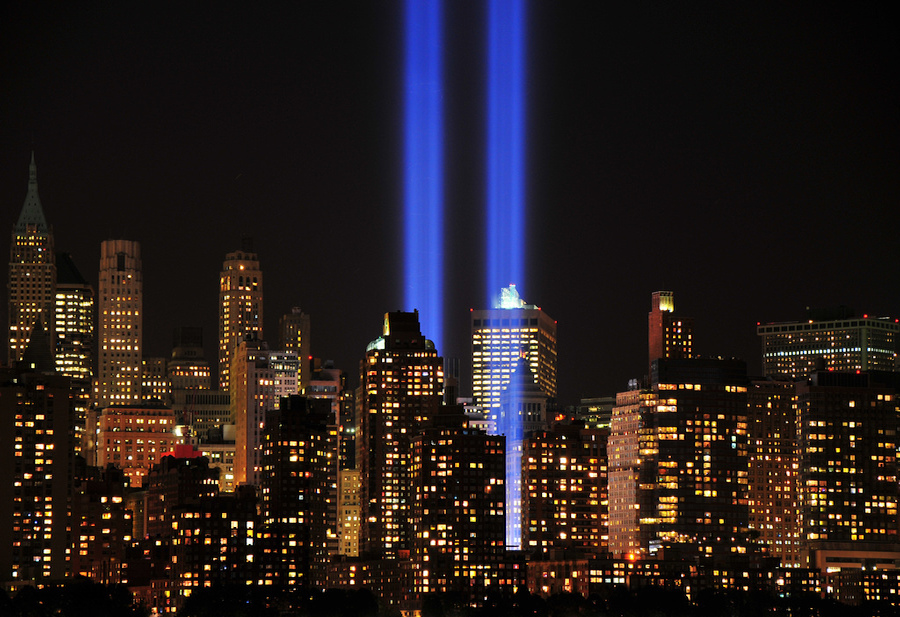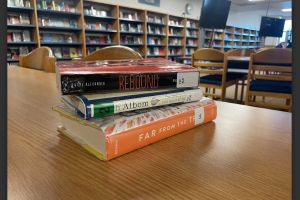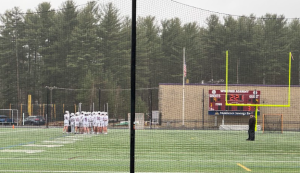Living in the post-9/11 world
September 11, 2017
Sixteen years to this day, our nation was hit with a swift and devastating blow. Americans who were old enough to remember the September eleventh attacks will likely never forget the horror and fear they felt that day, and can most likely answer the question “Where were you on 9/11?” with a vivid recollection of exactly where they were when the tragedy had reached his or her ears. However, for many teenagers and children, the answer is “wearing a diaper” or “sleeping in my crib”.
In the notable rift between those who are old enough to vividly remember 9/11, and those who are too young to carry a memory of it, there is a clear cultural difference. The distinct line between those born well before 2001 and those born too late to remember 2001 does not just divide high school students from their older peers and colleagues on the basis of remembering 9/11. However, it also divides society into those who can remember life before post 9/11 anxiety took over American culture, and those who grew up in the chaotic aftermath of tragedy.
People have a natural tendency to make 180-degree changes at times of turmoil, and for the United States, these changes emerged out of the wreckage and debris of ground zero. On October 7th, 2001, less than a month after the September 11th attacks on the World Trade Center, war was declared on terrorist forces in Afghanistan. This war still lives on today, despite the U.S army’s assassination of Osama Bin Laden six years ago.
Swift changes in legislation after 2001 stitched a new form of American culture, a new, monitored, fear-driven world that would become the only environment the emerging generation would ever know.
Suddenly 9/11 opened the door to a whole new dimension of government power as the public’s paranoia of terror grew. In the past decade, Americans young and old understood that being monitored was now a part of life, and accepted it graciously in return for a sense of security and safety. For children raised in the Bush era, this was not a transition of culture, but the standard way of life.
The fear generation has seen retrogression of protected liberties. They saw the effects of war on our culture, and have grown from a foundation that was at war abroad, and at war with itself.
Only nineteen days after the declaration of war on Afghanistan, the USA Patriot Act was passed, allowing domestic law enforcement officials to conduct wiretaps and surveillance on civilians under suspicion of terrorism.
Making matters worse, in 2002, President George W. Bush refused to give prisoner of war protection to terror suspects being held at the Guantanamo Bay detention center in Cuba, an action made with complete neglect to our nation’s constitutional rights of the accused.
A year later, while teens and young adults of this generation were children, President Bush launched a U.S invasion of Iraq, starting a war that would last eight years, and cost the lives of more than 4,500 American servicemen.
Only two years after 9/11, the United States was fighting two wars and had turned its back on democratic civil liberties with two executive and legislative decisions, all in the name of freedom, and all out of the widespread fear of terror.
Young millennials have never known the ritual of seeing loved ones off at an airport gate, rather than the security line. We have no memory of a nation at peace. Teenagers today were brought into this world during a time of fear, and we have been raised to be cautious and anxious about an attack at any given moment.
We are the first generation to have access to cell phones as adolescents, not to be used for emergencies or entertainment, but to let our parents know where we are at any time of day. For parents, letting their children go out and explore can no longer be done with ease. Government paranoia is excused in the name of public safety, and public fear is no longer questioned.
At WA, most teachers were old enough to remember where they were sixteen years ago, while most students were too young at the time, but, let us make no mistake, the ghost of 9/11 still haunts us all to this day.







